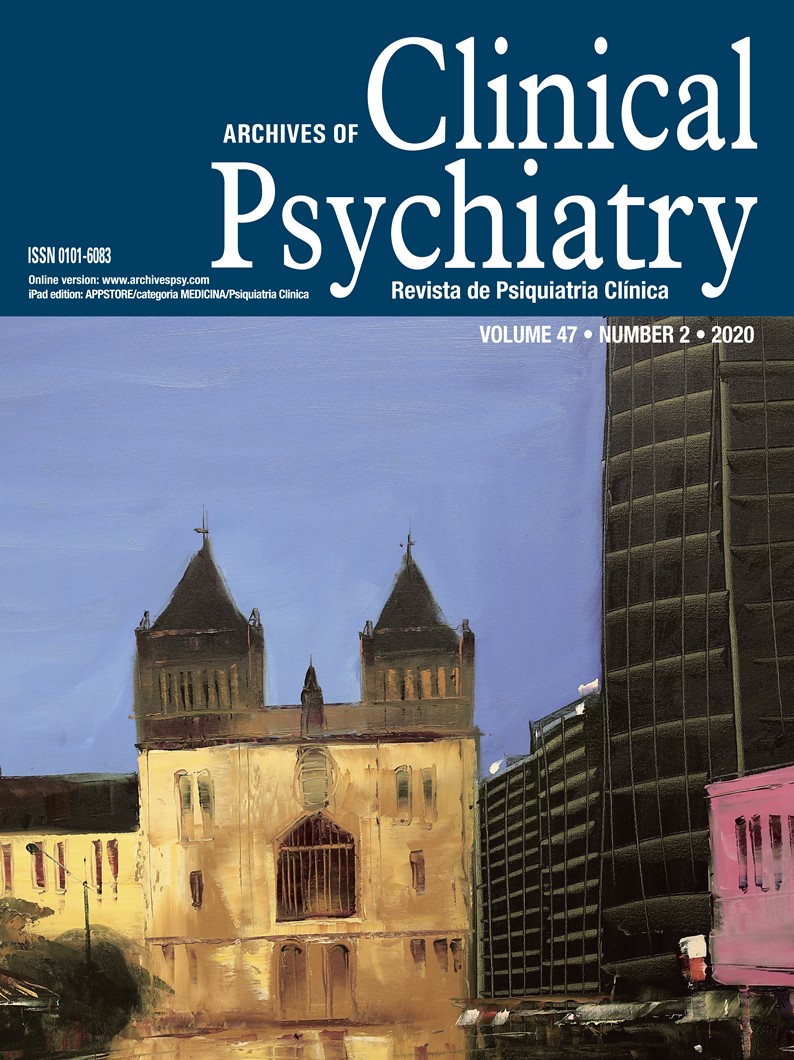G protein gene variants in schizophrenia
DOI:
https://doi.org/10.1590/0101-60830000000227Keywords:
G protein, GNB3, GNAS1, schizophrenia, polymorphismsAbstract
Various studies demonstrating enhanced vulnerability to apoptosis may contribute to the pathobiology of schizophrenia. Objective: Thus, G proteins may provide an intriguing link between the signal transduction, and apoptotic hypotheses of schizophrenia. In the light of these findings, we investigated whether G protein gene polymorphisms (GNAS1-T393C and GNB3-C825T) accounted for an increased risk of schizophrenia. Methods: The present analyses were based on 100 subjects diagnosed with schizophrenia, and on 100 unrelated healthy controls. The genotyping of GNAS1-T393C, and GNB3-C825T gene polymorphisms were performed using the polymerase chain reaction- restriction fragment length polymorphism (PCR-RFLP). Results: We demonstrated the positive association of GNB3-C825T gene variants with schizophrenia risk (p: 0.023). In our study, more prevalent CC genotype frequencies were detected in GNB3 in patients compared with the frequencies in the controls. The individuals with GNB3-C825T CC genotype had 2 fold increased risk for schizophrenia (p: 0.011, c2: 6.39, OR:2.14, 95% CI: 1.18-3.90). Discussion: Our study results suggested that GNB3-C825T polymorphism might be associated with schizophrenia.
Downloads
References
Downloads
Published
Issue
Section
License
Once accepted for publication, the manuscript becomes permanent property of the Archives of Clinical Psychiatry. This copyright transfer subsumes exclusive and unlimited entitlement of the Archives of Clinical Psychiatry to publish and distribute the full contents of articles in whichever publishing medium, including press and electronic media, in Brazil and abroad.
Manuscripts are accepted with the understanding that the Editor and the editorial staff have the right to make revisions aimed at greater conciseness, clarity, and conformity with Journal style, of course without changing its content.


